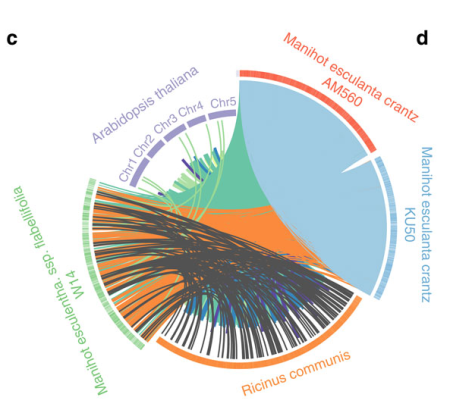Lots on maize on the interwebs lately. First, there was a Nature Plants paper on the origin of the crop in the southwestern US, comparing DNA from ancient cobs with that from Mexican landraces:
“When considered together, the results suggest that the maize of the U.S. Southwest had a complex origin, first entering the U.S. via a highland route about 4,100 years ago and later via a lowland coastal route about 2,000 years ago,” said Jeffrey Ross-Ibarra, an associate professor in the Department of Plant Sciences.
A separate article in the journal summarized the results and set them in a wider context:
As genomic and palaeo-genomic studies have become more common, it has become increasingly clear that virtually every domestic plant and animal has incorporated genomes of numerous populations, including many that were not involved in the original domestication process. For example, although grapes, apples and pigs were domesticated outside of Europe, admixture with native wild European species has been so significant as to obscure the geographic origins of the modern domestic populations.
Meanwhile, the controversy over how to measure genetic erosion in maize continues, though I’m afraid in this case only the extract is free.
Which all means that the rather nice learning resource on maize domestication at the University of Utah, which I coincidentally recently came across, may need to be tweaked a bit.
Incidentally, if you plug Zea into the Native American Ethnobotany database at the University of Michigan, also a serendipitous find over the holidays, you’ll see that maize was far from being just a food plant.
There are even a couple of historical maize specimens included in the beta version of the new data portal of the Natural History Museum in London, which seems to be getting the softest of launches just now. Great to browse through. Not sure what kind of launch Brazil’s new(ish) biodiversity information system (SiBBs) got, but it too features maize records, over 400 in this case, though only 10 georeferenced. The source of most is given as “Dados repatriados – United States (no coordinates)”, which means that they came from GBIF, and in the case of maize are probably therefore mostly from GRIN. As I said a couple of posts ago for wheat, data sure does get around online.
